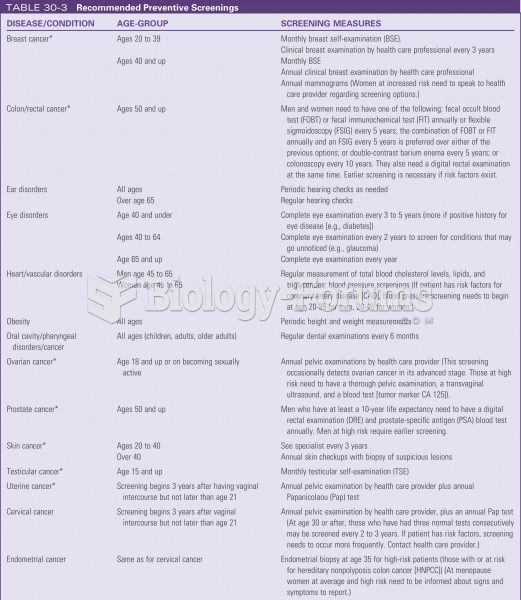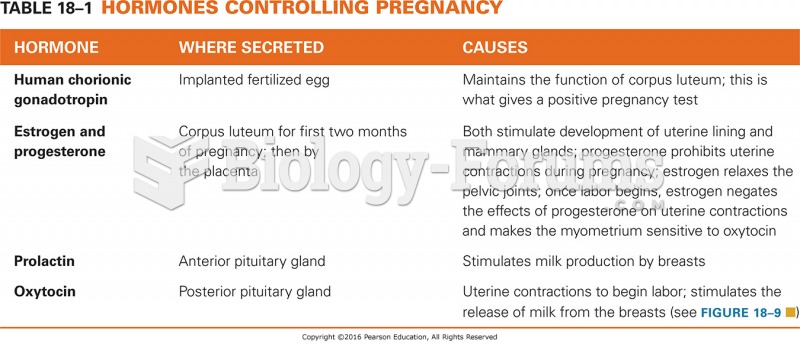|
|
|
Bacteria have flourished on the earth for over three billion years. They were the first life forms on the planet.
The calories found in one piece of cherry cheesecake could light a 60-watt light bulb for 1.5 hours.
Hip fractures are the most serious consequences of osteoporosis. The incidence of hip fractures increases with each decade among patients in their 60s to patients in their 90s for both women and men of all populations. Men and women older than 80 years of age show the highest incidence of hip fractures.
Asthma attacks and symptoms usually get started by specific triggers (such as viruses, allergies, gases, and air particles). You should talk to your doctor about these triggers and find ways to avoid or get rid of them.
The longest a person has survived after a heart transplant is 24 years.







